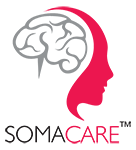Neuropsychiatric Disorders and Conditions in India

List of Neuropsychiatric Disorders and Conditions in India – Neuro issues have been becoming very common in our society for the last decade, these issues include Headaches, Epilepsy, Stroke, Seizures and many more. According to WHO data, over 56 million Indians experience depression, while another 38 million suffer from anxiety disorders. Furthermore, more than 18% of Indians suffer from various types of neuro diseases ranging from slight to significant. Therefore, there is a strong demand for neuropsychiatry treatment in the pharmaceutical industry. Today in this article we will explain which are the majorly faced Neuropsychiatry Disorders in India for awaring our society regarding the necessary information of mental problems.
This List of Neuropsychiatric Disorders and Conditions will help to identify the right neuro disorder as per the symptoms since we will mention all. Neurological illnesses affect up to 1 billion individuals or roughly one-sixth of the world’s population, and range from Alzheimer’s and Parkinson’s disease to strokes, multiple sclerosis, and epilepsy, as well as migraine, brain traumas, and neuro infections. Neurological illnesses affect up to 1 billion individuals or roughly one-sixth of the world’s population, and range from Alzheimer’s and Parkinson’s disease to strokes, multiple sclerosis, and epilepsy, as well as migraine, brain traumas, and neuro infections.
Common Brain Problems, Neuropsychiatric Disorders, Symptoms And Reasons Behind Neurological Problems
Depression
Depression is a mental condition or a neurological disorder characterised by a persistent sense of melancholy and a loss of interest in a variety of activities. It is one of the highly recognized neuropsychiatric disorders that impact how the patient feels, thinks, and behaves and can lead to a variety of emotional and physical problems. Depression occurs when people start overthinking and taking too much stress for a long time, which can sometimes become severe and lead to a variety of other issues such as migraine, headaches, dizziness, and weakness.
The Major Symptoms of depression include:
- Apathy
- Anxiety
- Headache
- Hopelessness
- General discontent
- Loss of interest
Bipolar Disorder – Neuro Problem Related To manic depression
Bipolar illness, also known as manic depression, is a mental health disease characterised by significant mood fluctuations, including emotional highs and lows. Bipolar illness is largely thought to be caused by chemical imbalances in the brain. Neurotransmitters are substances that govern the functioning of the brain and include noradrenaline, serotonin, and dopamine. When a person’s mood switches to mania or hypomania, they may feel joyful, energised, or especially irritated. Sleep, energy, activity, judgement, conduct, and the capacity to think clearly can all be affected by mood fluctuations.
What one may experience if he or she suffers from Bipolar Disorder?
- Unpredictable conduct to the extreme.
- Unpredictable highs and lows.
- Manic and depressive symptoms.
- Minor bipolar and unidentified mood alterations.
Parkinson
Parkinson’s disease is a neurological ailment that causes tremors, stiffness, and difficulties walking, balancing, and coordinating. Parkinson’s symptoms often appear gradually and worsen with time. Parkinson’s is one of the neurological disorders in which people may have trouble walking and communicating as the condition advances.
Parkinson’s disease is caused by a loss of nerve cells in the substantia nigra, a region of the brain. Dopamine communicates between regions of the brain and nervous system that assist govern and coordinate bodily movements. However, with Parkinson’s disease, dopamine levels drop, having a deleterious influence on the entire body.
Symptoms of Parkinson
- The limbs and trunk are stiff.
- Movement is slow.
- Impaired balance and coordination, can result in falls.
Migraine Headaches
A migraine is more than just a painful headache, which is one of the most frequent and well-known neuro diseases. It produces extreme pain in one part of the brain and is influenced by physical activity, lighting, sound, and a variety of other factors.
There are several types of migraine, including ordinary migraine, migraine without pain, and hemiplegic migraine, which causes momentary paralysis. A retinal migraine causes a loss of vision. Chronic migraine, which lasts 15 days per month, and status migrainosus, which happens seldom but lasts three days. These are migraines that are triggered by hormonal fluctuations, specific foods and drinks, stress, and exercise.
Symptoms of migraine headaches
- Vomiting and nausea.
- Throbbing or pulsing pain.
- Sensitivity to light, sound, and, on rare occasions, smell and touch.
- Pain is commonly felt on one side of your head, although it can occur on both sides.
Uncontrolled Anger
It is worth noting that frontal areas involved in emotion regulation, such as the orbital, medial, and ventrolateral frontal cortex, have also been linked to the rage response. As a result, rage induction experiments have discovered that this emotion is related with heightened activity in these locations.
Anger can be triggered by a variety of factors, including stress, family troubles, and financial concerns. This is a Neuropsychiatric Disorder that can be triggered by an underlying disease, such as alcoholism or depression, in certain people. It is a symptom of a brain problem as well as a reaction to frustration; irritation has long been recognised as a trigger for anger and, eventually, violence.
Symptoms Of Uncontrolled Anger
- Feeling of irritation.
- Feel as if your rage is out of control.
- When you’re upset, you frequently regret what you’ve said or done.
- Take note of how minor or insignificant things irritate you.
Anxiety – Neuropsychiatric Disorders Faced While in Tension
In stressful situations, such as public speaking or passing an exam, anxiety is common. When sensations become overwhelming, all-consuming, and interfere with everyday functioning, anxiety is just a symptom of underlying sickness. Anxiety, a brain problem is characterised by feelings of fear, dread, and unease. It can cause a person to sweat, feel agitated and tight, and have a quick heartbeat. It might be a natural stress reaction. For example, when confronted with a challenging challenge at work, before taking a test, or before making an important decision, a person may experience anxiety.
Symptoms of Anxiety
- Sweating.
- Trembling.
- panic or doom.
- Feeling nervous.
- Restless or tense.
- A sense of impending danger.
- Increased heart rate.
Eating Disorders
Eating disorders are a group of psychological illnesses that lead to the development of poor eating behaviours. They may begin with a fixation with food, body weight, or body form. If left untreated, eating disorders can have substantial health repercussions and could result in death in severe circumstances.
In other words, eating disorders are mental health illnesses characterised by a fixation on food or body form. They can affect anybody, but are especially common in young women. These disorders affect approximately 20 million women and 10 million men in the United States, and they can be found in all population numbers irrespective of background, ethnicity, economic status, religion, sex, gender, etc.
Symptoms of Eating Disorders
- Underweight.
- Distorted body image.
- Changes in body pattern.
- Unusual eating pattern.
Attention Deficit Disorders – Neuropsychiatric Disorders Faced by Kids
One of the most frequent mental problems of kids is attention deficit disorder which also comes under the category of neuropsychiatric disorders in India. It is typically diagnosed in childhood and might extend into maturity. Children with attention deficit disorders may struggle to pay attention, regulate impulsive behaviour, or be excessively busy in daily life.
There are many causes of attention deficit disorders, but the most common are genetic issues, which can be passed down through families, and brain injury, exposure to natural risks during pregnancy or at an early age, tobacco and alcohol use during childbirth, premature delivery, and low birth weight. Typically, a youngster is unable to pay attention to what he or she is doing, which leads to a variety of additional concerns such as failure, which can trigger.
There Are Few Symptoms Of Attention Deficit Disorders
- Talking too much.
- Inability to sit still.
- Fidgeting all the time.
- Unable to focus on duties.
- Excessive physical activity.
Cognitive Deficit Disorders
Cognitive disorders are defined as any disorder that severely affects an individual’s cognitive processes to the point that regular functioning in society is impossible in the absence of therapy. The most well-known ailment connected with cognitive decline is Alzheimer’s disease which is also a one of the major Neuropsychiatric Disorders.
Cognitive deficiency is a broad phrase that refers to impairments in an individual’s mental processes that lead to the acquisition of information and knowledge and influence how an individual perceives and acts in the environment. It is a category of several mental disorders that include memory loss, language problems, concentration problems, and many more.
Symptoms of Cognitive Deficit Disorders
- Confusion.
- Confusion over identity.
- Impairment of judgement.
- Inadequate motor coordination
- Short-term or long-term memory loss
Brain Tumour
Initial brain tumours originate when normal cells get alterations in their DNA, often known as mutations. The DNA of a cell includes the instructions that inform the cell what to do. The mutations instruct the cells to grow and divide quickly and to live even when healthy cells would perish. A brain tumour seems to be a cluster of developing cells. The pace of growth and location of a brain tumour influence how it affects the function of your neurological system. Apart from this, one or two tumours are not called brain cancer, however, if there are more than 3 tumours in the brain then it has to be considered as brain cancer and become major Neuropsychiatric Disorder.
- X-ray radiation.
- Cancer treatment history.
- passes from Family members.
Symptoms of Brain Tumour
- Headaches.
- Seizures.
- Personality or behaviour changes.
- Paralysis in one part or one side of the body.
Brain Stroke
A brain stroke is defined as a clogged artery or the leakage or rupture of a blood vessel. Some patients may have just a brief disturbance in blood flow to the brain, known as a transient ischemic attack, which may not result in long-term symptoms. There are several common symptoms, such as faulty heart valves and atrial fibrillation, or irregular heartbeat, which causes one-quarter of all strokes in the extremely old.
Furthermore, high blood pressure is a primary cause of brain stroke because it affects the veins and causes blood clots to develop in the arteries leading to the brain, obstructing blood flow and potentially triggering a stroke. This is the one of
Symptoms Of Brain Stroke;
- Headaches.
- Trouble in speaking.
- Changing in behaviour.
- Paralysed from legs, eyes and many other parts.
Conclusion:
The mentioned conditions are the various neuropsychiatry disorders or problems that are faced by people in India and around the World. These neuro issues should not be overlooked, and the proper care should be taken if someone is facing any neuropsychiatry problems.
If you or anyone you know is facing any of these neuropsychiatric disorders or problems, then they should talk to their family and also consultation with a doctor is advised. These are various kinds of medicines that are available in the market that can be used for the treatment of neurological disorders like; Depression, Anxiety, Uncontrolled Anger, Migraine Headaches, Parkinson’s, Attention Deficit Disorders, Bipolar Disorder, Cognitive Deficit Disorders, Eating Disorders etc.





